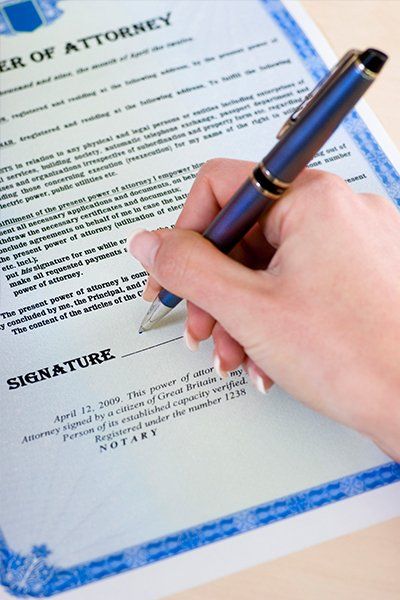Power of Attorney Overview and Information
A power of attorney is an instrument containing an authorization for one to act as the agent of the principal that terminates at some point in the future either by its terms or by operation of law, such as death of the principal or agent.
The power of attorney is frequently used to help in the event of a principal's illness or disability or in legal transactions where the principal cannot be present to sign necessary legal documents. A power of attorney can be general, durable or limited. Some states have adopted a statutory power of attorney. Other specific types of power of attorneys include:
- Health Care Power of Attorney
- Power of Attorney for Care and Custody of Children
- Power of Attorney for Real Estate matters
- Power of Attorney for the Sale of a Motor Vehicle
A lawyer can assist a client by:
- Advising on the powers that are appropriate to be delegated
- Assisting in the choice of an agent
- Informing the agent of their legal and fiduciary obligations while acting under a power of attorney, and
- Ensuring proper legal drafting of the power of attorney document
Attorneys who prepare powers of attorney typically handle other matters for their clients, such as estate planning, family law, and commercial transactions, among others.
